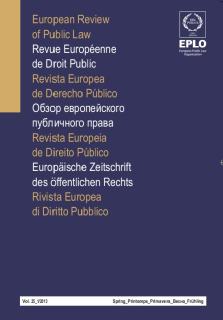
ECONOMIC CRISIS IN SERBIA:
HANGING OVER THE OLD CLIFF
MIHAJLO BABIN
LL.B (Novi Sad), M.Sc. (Singidunum Belgrade), PhD candidate (Belgrade), Teaching Assistant, Faculty of Economy, Finance and Administration, Singidunum University, Belgrade
MILOŠ ERIĆ
BEcon (Singidunum Belgrade), M.Sc. (Singidunum Belgrade), PhD candidate (Singidunum Belgrade), Teaching Assistant, Faculty of Economics, Finance and Administration, Singidunum University, Belgrade
TATJANA PAPIĆ
LL.B (Belgrade), LL.M. (Connecticut), PhD (Union Belgrade), Lecturer, Faculty of Law, Union University Belgrade
The paper argues that economic policy and macroeconomic indicators in Serbia before 2008 reveal that the economic crisis in Serbia would have been triggered even without the global one. It discusses a set of anti-crisis measures introduced in Serbia concluding that, although predominantly well-targeted and properly implemented, they have been unable to cure structural problems of the Serbian economy. The implementation of the procyclical fiscal policy in the pre-crisis period prevented the achievement of effective results. The main conclusion is that unsolved structural problems (high unemployment and inflation rate, trade and budgetary deficit) contributed to the amplification, deepening and multiplying of the negative effects of the crisis. The paper also discusses challenges the economic crisis brought to the enjoyment of human rights in Serbia. It argues that old problems in this area remained, while the crisis added additional chal-lenges to the economic and social rights enjoyment.
Le rapport soutient que la politique économique et les indicateurs macroéconomiques en Serbie avant 2008 montrent que la crise économique se serait déclenchée dans ce pays même sans la crise économique mondiale. Il discute une série de mesures anti-crise introduits en Serbie et conclut que, même si elles ont été en large part bien ciblées et appliquées correctement, elles ont été incapables de remédier aux problèmes structurels de l'économie serbe. La mise en œuvre de la politique fiscale procyclique dans la période ayant précédé la crise a empêché d'obtenir des résultats effectifs. La conclusion principale est que les problèmes structurels non résolus (fort taux de chômage et d'inflation, déficit commercial et budgétaire) ont contribué à amplifier, approfondir et multiplier les effets négatifs de la crise. Le rapport discute aussi les défis que la crise économique a apportés en matière de jouissance des droits de l'homme en Serbie. Il sou-tient que de vieux problèmes subsistent en ce domaine et que la crise a ajouté des défis supplémentaires à la jouissance des droits économiques et sociaux.





















